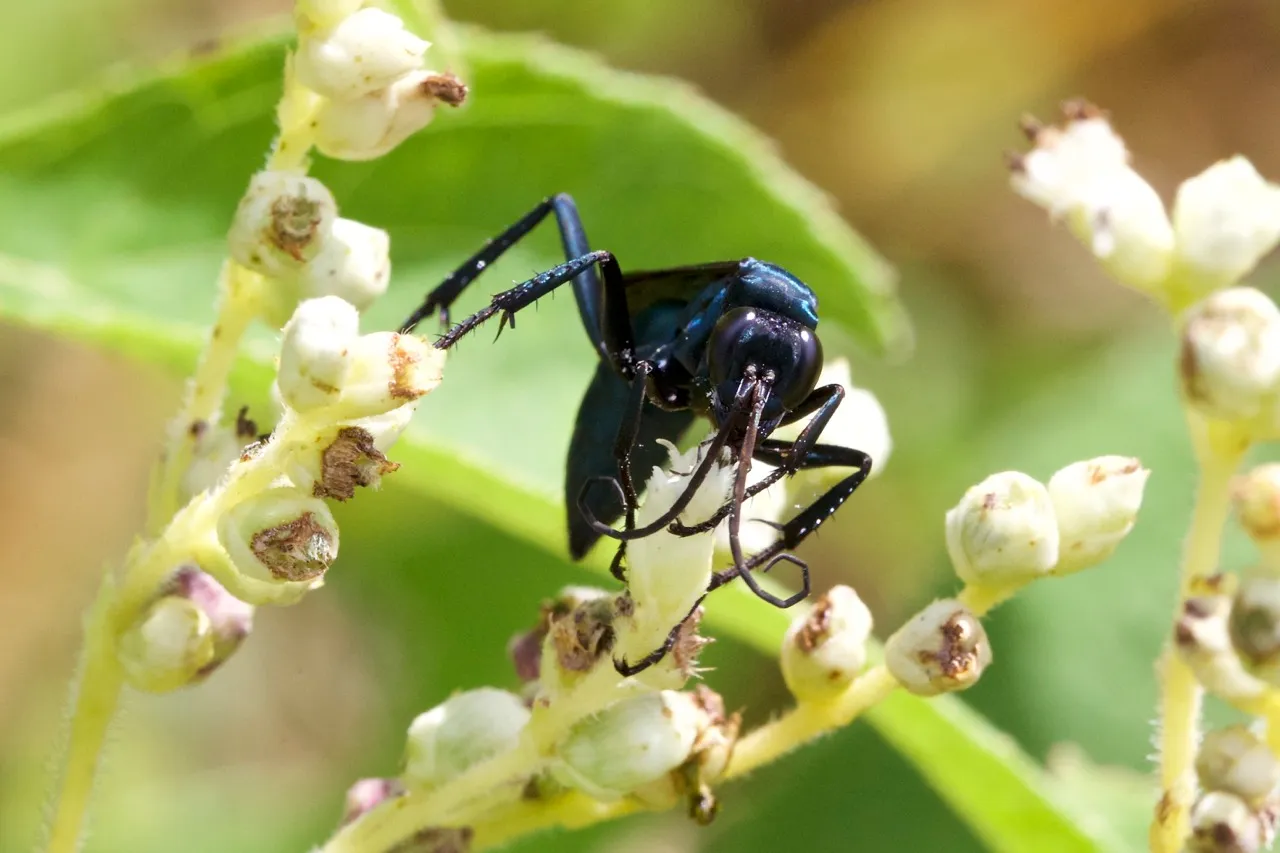Do insects have an awareness, are they conscious?
In this post I would like to share my own personal feelings and ideas about awareness. I’m not a scientist nor a biologist. I’m just somebody who has always been fascinated by this topic.
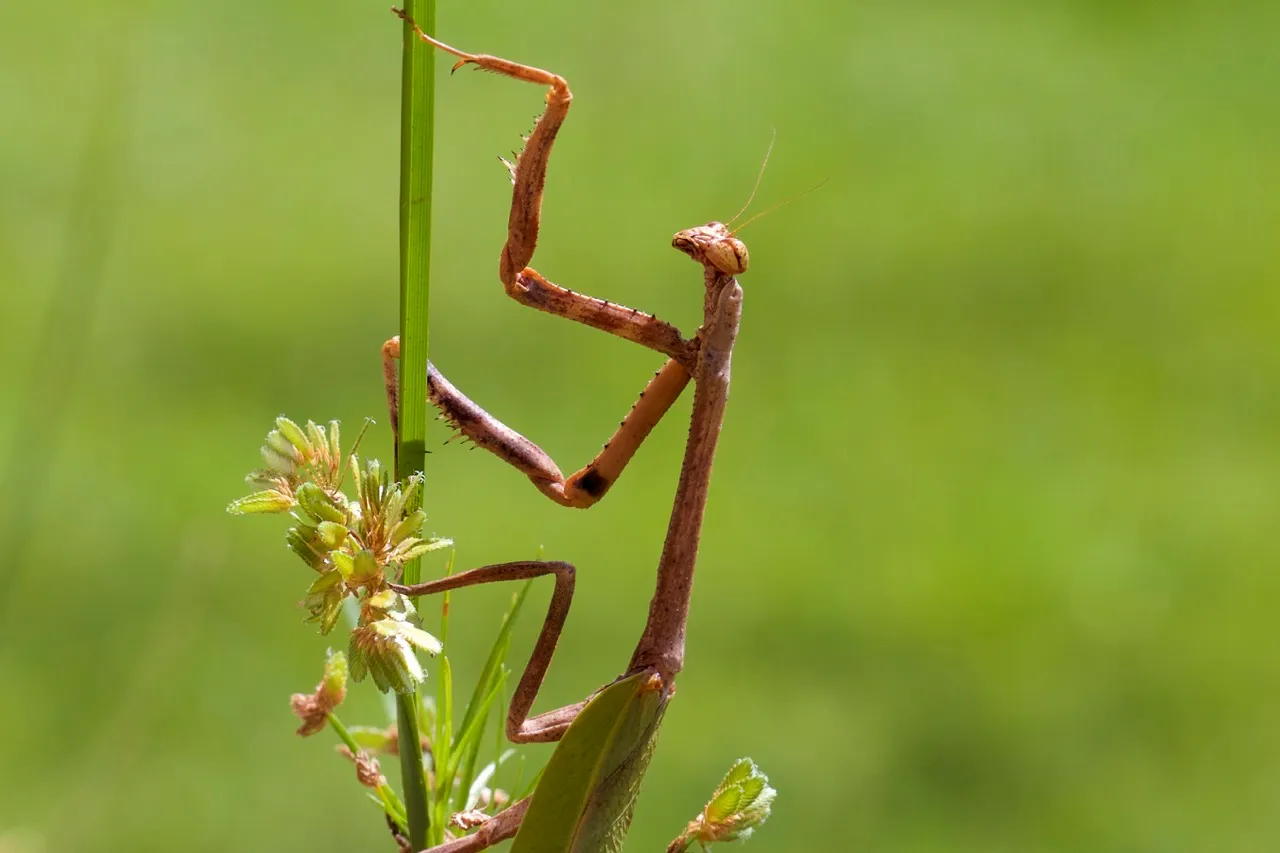
When I looked up “awareness” on Wikipedia, the second sentence in the article that I found was:
“Insects do not have consciousness in the usual sense because they lack the brain capacity for thought and understanding.”
Personally I think there are a few problems with this sentence.
- How is “consciousness in the usual sense” defined?
- How much brain capacity is needed for a being to be aware, to be conscious?
- Is brain capacity needed at all to be aware? Are plants not conscious in their own way?
- Is thought and understanding the only way by which awareness can be defined?
Further down the article a different theory was presented. This theory was formulated by Humberto Maturana and Francisco Varela in their “Santiago theory of cognition” in which they wrote:
“Living systems are cognitive systems, and living as a process is a process of cognition. This statement is valid for all organisms, with or without a nervous system.”
This theory presents a completely different view about cognition and awareness. It suggests awareness on a organic level that many would not consider conscious. Every living system, whether it’s a single cell organism or a more complex organism, responds and interacts with its environment. Therefore it can be argued that in order to do so that awareness exists within every level of life.
We humans consider ourselves to be aware or conscious because we think. We as the observer can differentiate between the observer and the observed. We, as a living system, interact with our environment. If we see a threat, we might want to run away. If it rains, we look for shelter. If we see an apple, we might decide to pick it up and eat it.
This is exactly the same for any organism on any level. The only difference between humans and less complex living systems is the amount of awareness about our environment in our brain. But we, being aware in our mind, are completely unaware of what’s going on in our 37.2 trillion cells that make up the human body.
Therefore awareness must exist on many levels. The cells themselves might not know that they are part of a bigger living system but they continuously adjust to their environment and they know exactly what to do to support that living system. They even know when to die.
When we look at insects, we might think they are not aware but I believe that they are. They might not think like we do. But they definitely interact with their environment in sometimes very complex ways.
Take these ants for example. They are operating an aphids farm. Ants and aphids have a symbiotic relationship with each other. The aphids secrete a sugary food for the ants and the ants protect the aphids from predators and parasites.
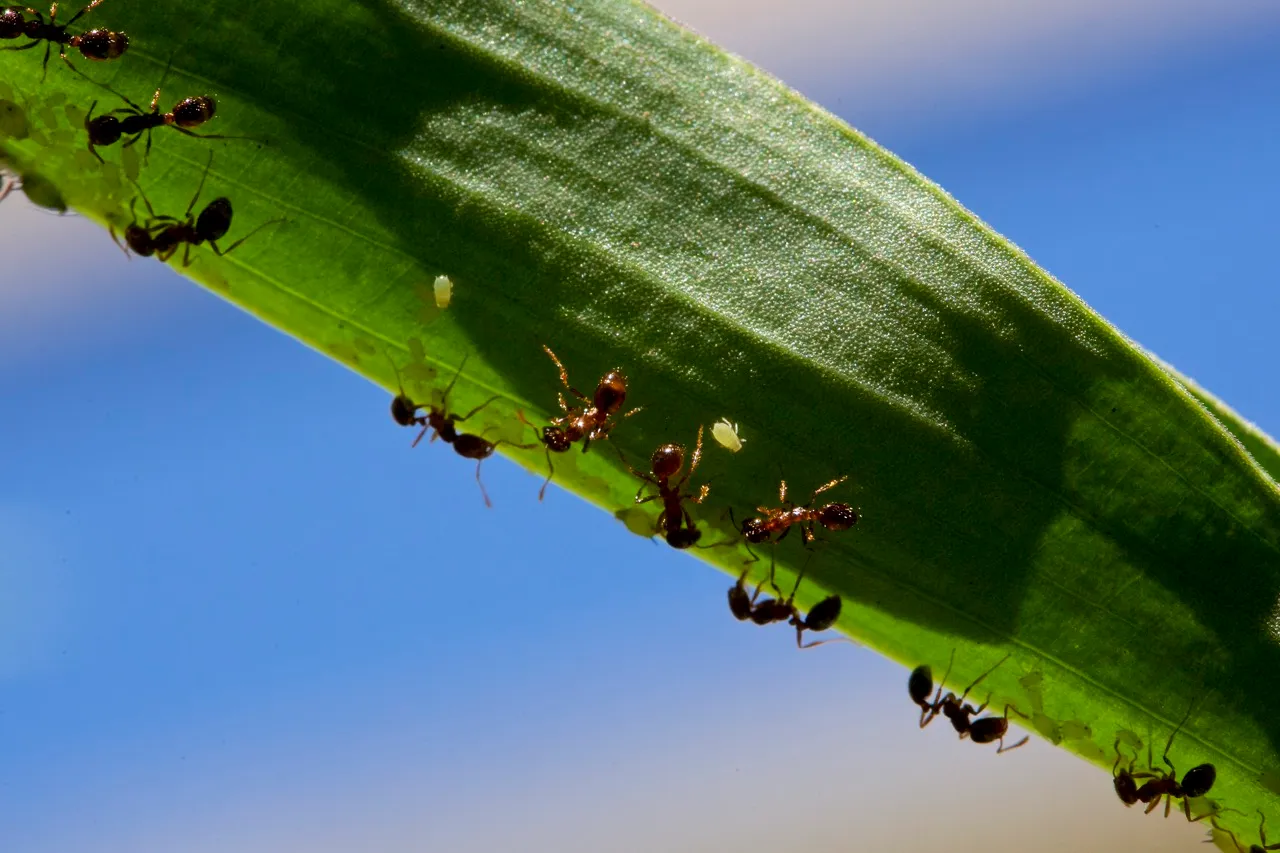
Ants possess this knowledge and they know what to do. They are doing this in reference to themselves.
Maturana formulates it as such:
"that what was peculiar to living systems was that they were discrete autonomous entities such that all the processes that they lived, they lived in reference to themselves ... whether a dog bites me or doesn't bite me, it is doing something that has to do with itself."
But how do ants know how to farm the aphids? How and where did they learn this?
Ants are always born in a colony, a collective of individual ants in which each ant has a different role to fulfil. Do they simply copy the behaviour of other ants? How does the ant know wether to become a worker or a soldier or a farmer? The ant is perhaps not consciously aware of it’s role. But as a living system it is. The ant starts to work according to its designated role in an extremely complex society.
The ant colony as a whole can be seen as a living system as well. Not in the biology sense of the word perhaps, but it does act as a living system. When it’s attacked it will defend itself. When the nest is damaged, the ants will repair it. As a colony it does so to protect itself as a colony which results in the survival of the ants, but not necessarily results in the survival of the individual ant.
The ants as a colony seem to operate on a different level of awareness. A level of awareness that benefits the ants but not necessarily the individual.
In this picture we see a grasshopper hiding from me. It’s completely aware of me. It’s hiding from me in reference to itself. It will not know that I’m called a human but it sees me as threat and responds accordingly.
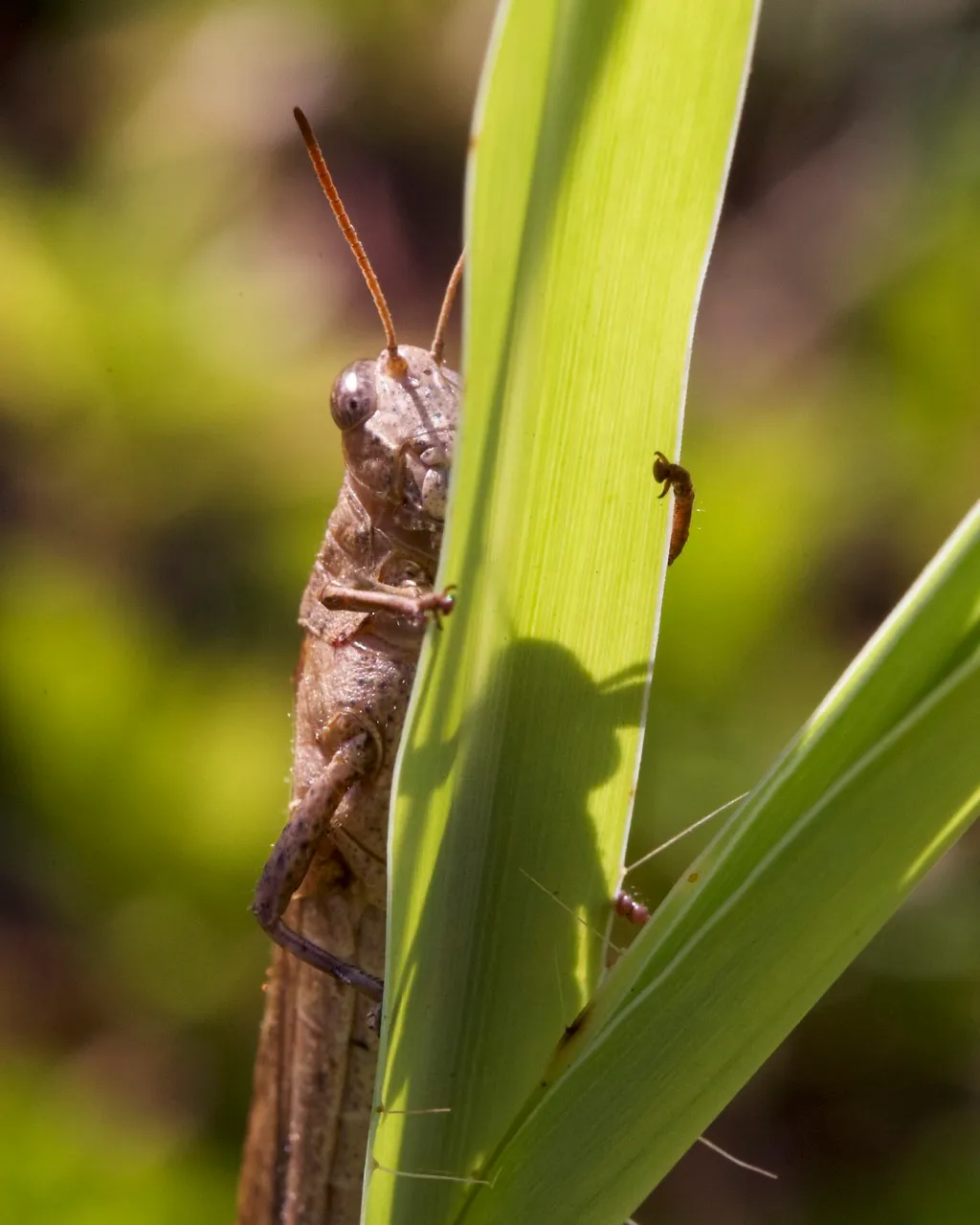
The same grasshopper from a different angle. Notice that it is again looking at me.
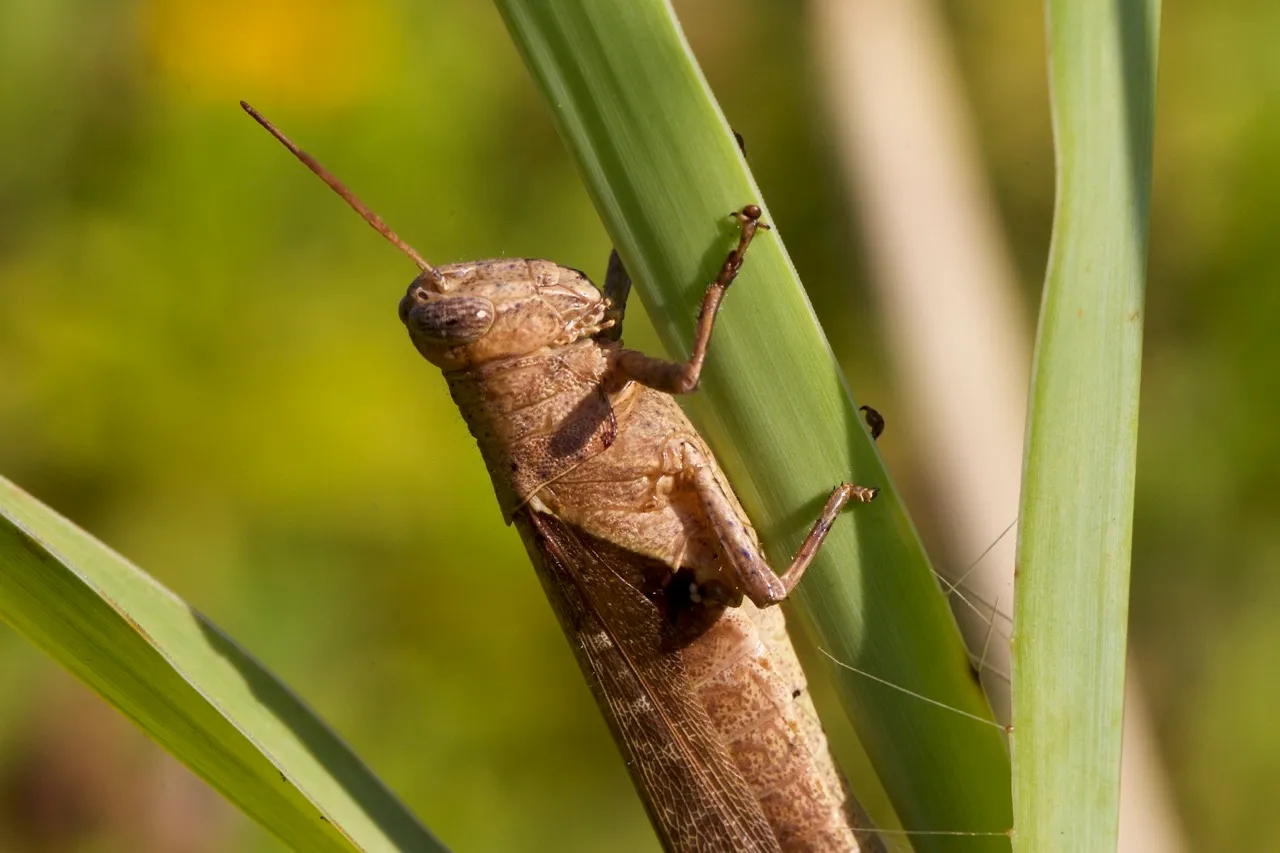
In the following pictures you can clearly see that all these insects are looking at me. They are aware of my presence.
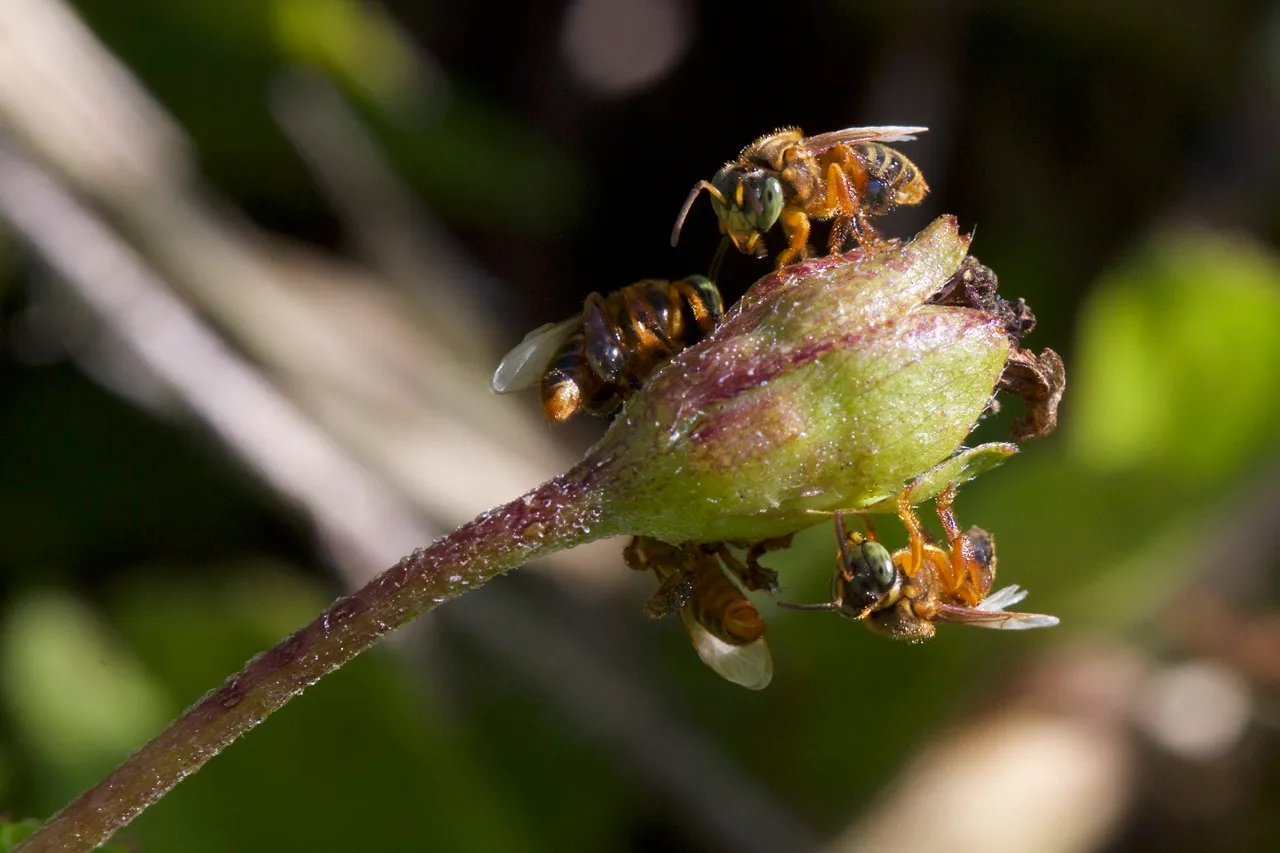

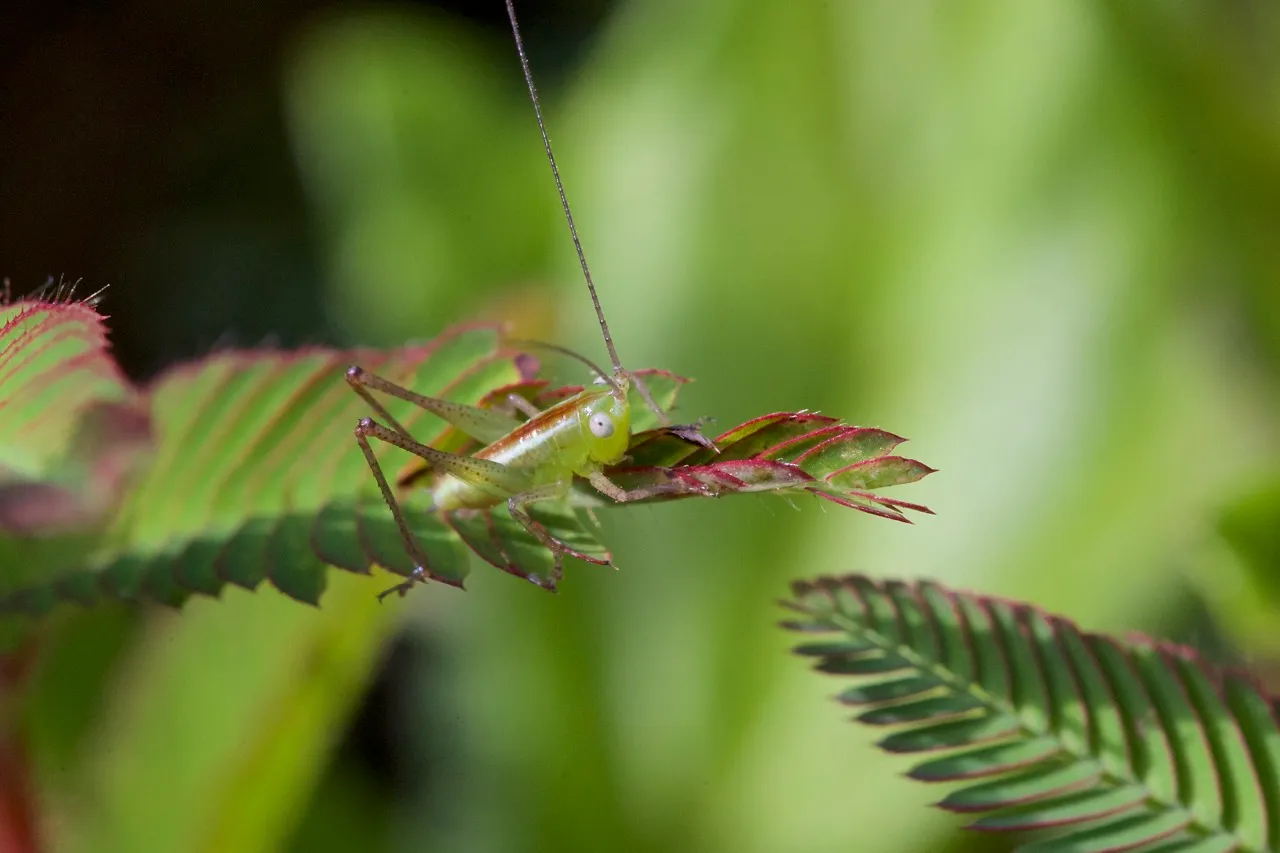
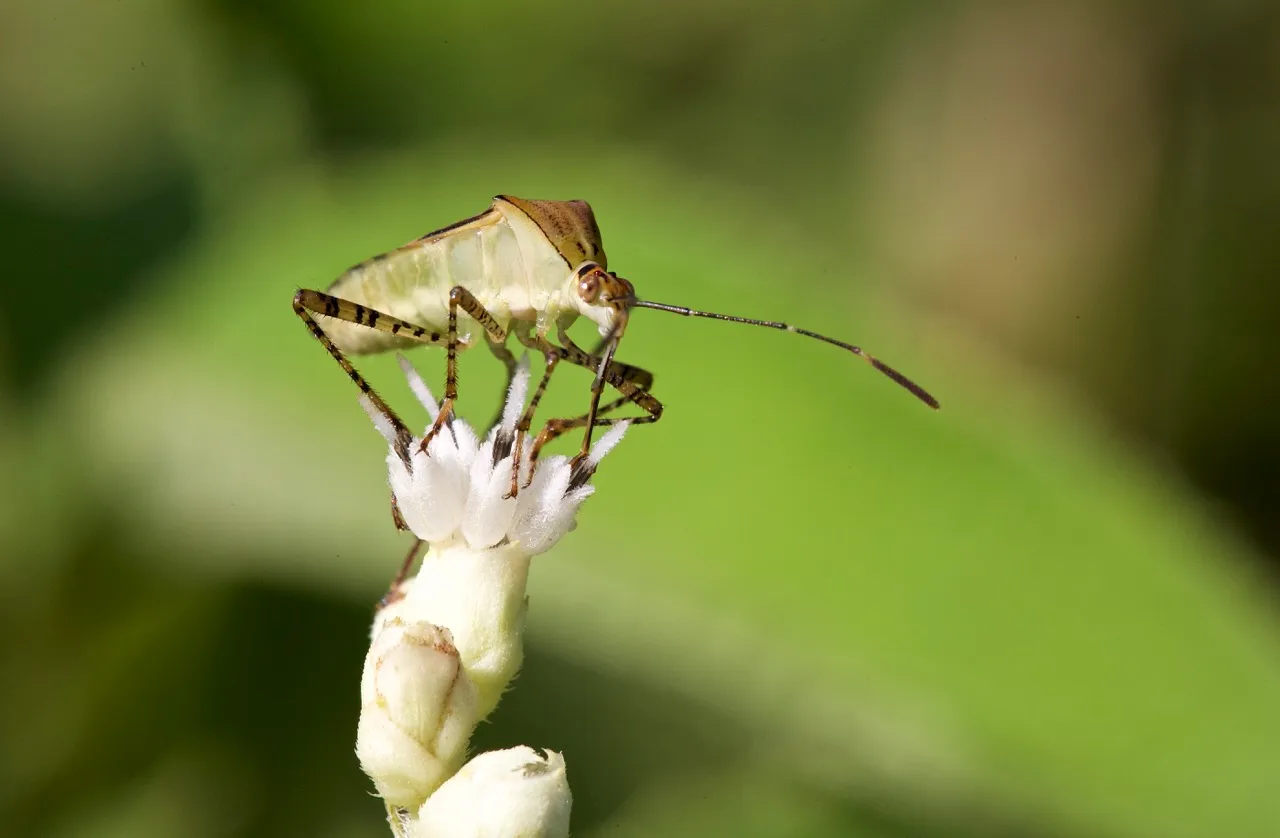
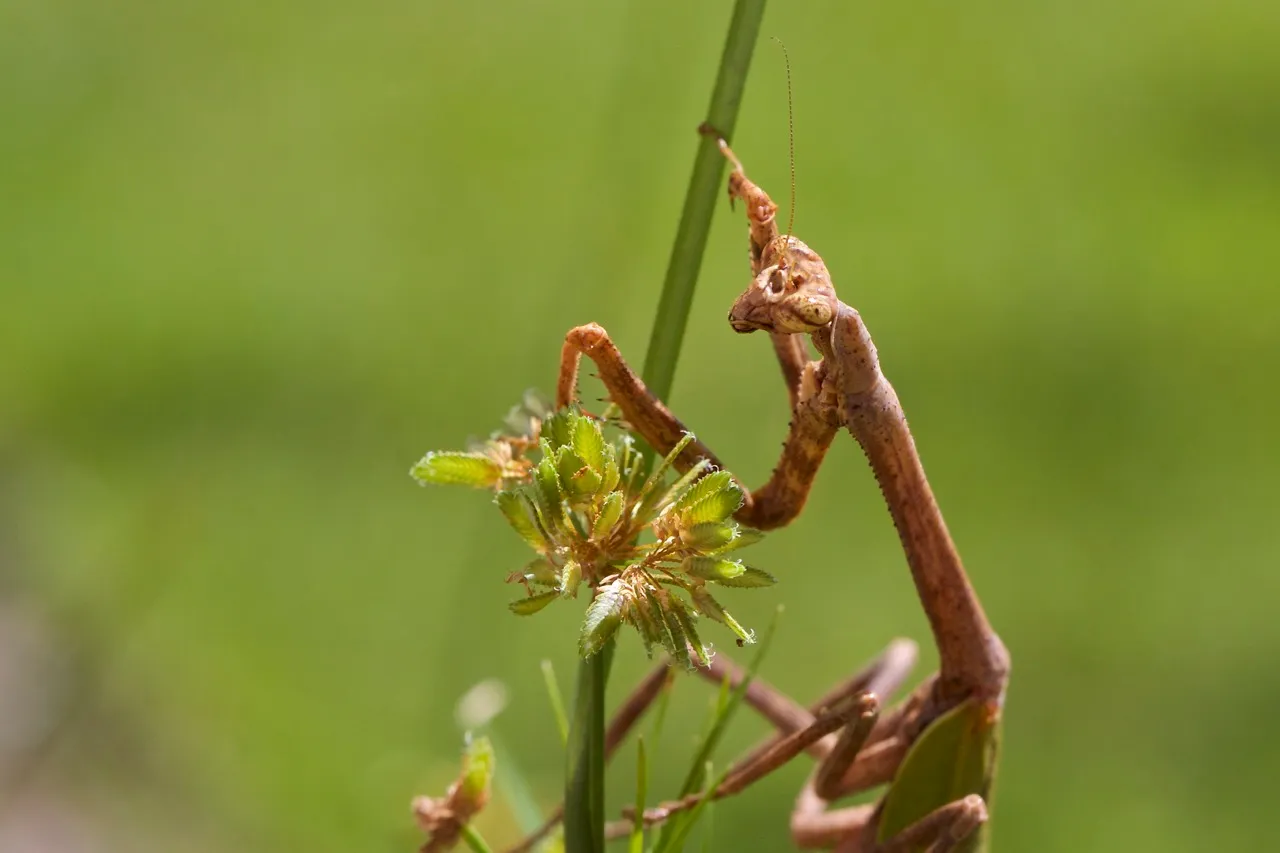

This dragonfly allowed me to approach it real close. Maybe it just recently emerged from it’s pupae. It definitely seems to look at me.

I’m quite convinced that it’s exactly the same dragonfly that I photographed a week later. Notice the little white dot on its left eye.
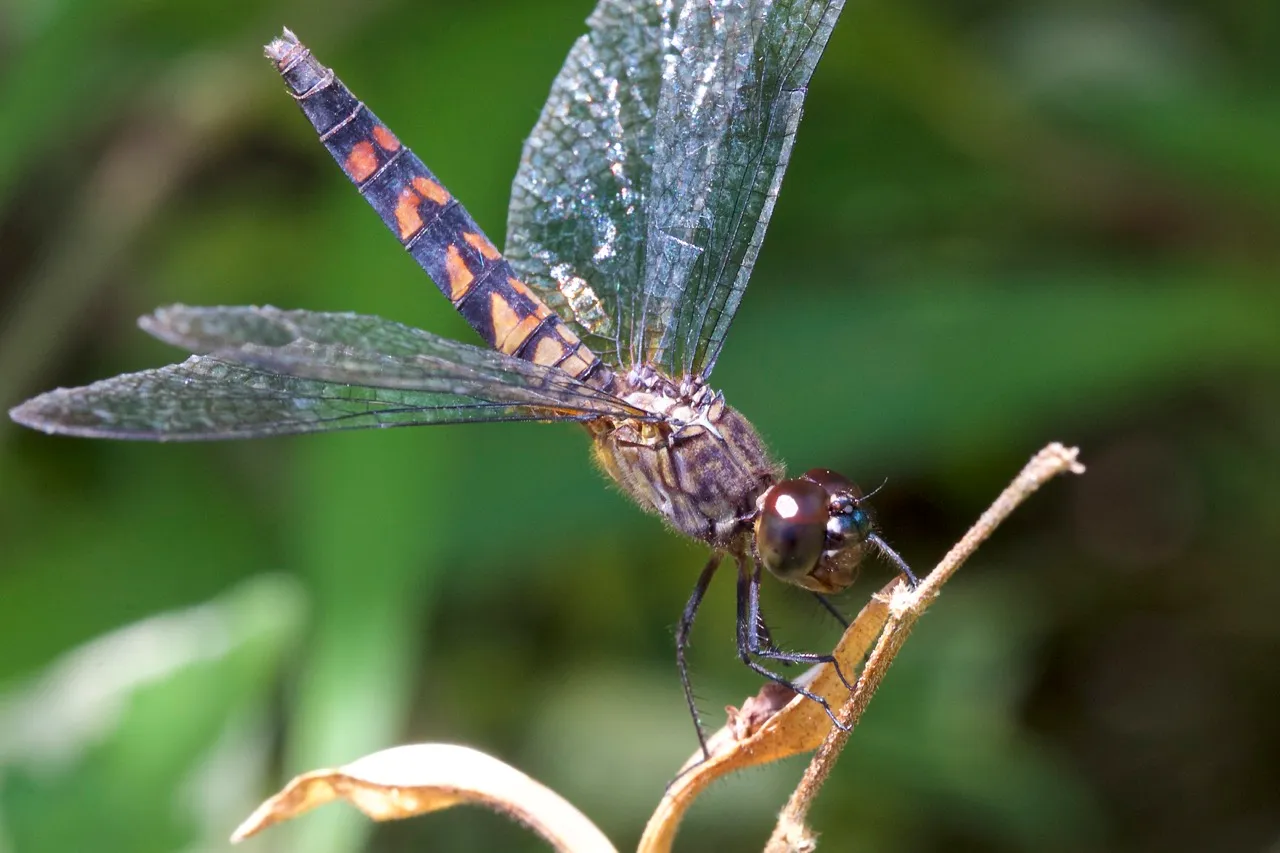
This time I could get really close. But what’s more; I think this one was actually flirting with me. It was not afraid of me, maybe it still remembered me and maybe it saw my camera lens as giant dragonfly eye. Who knows? I know this a very anthropomorphised view of the insect but it did interact with me in reference to itself.
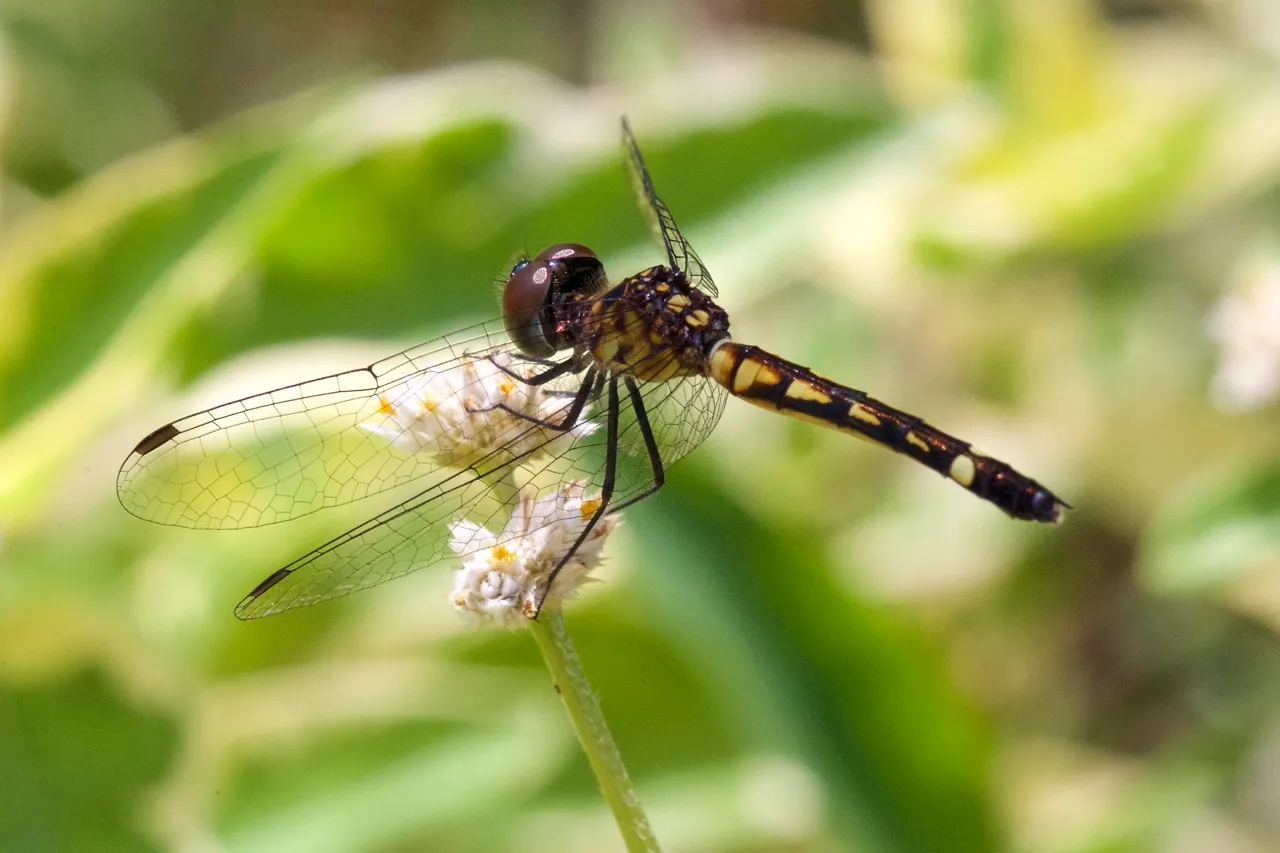
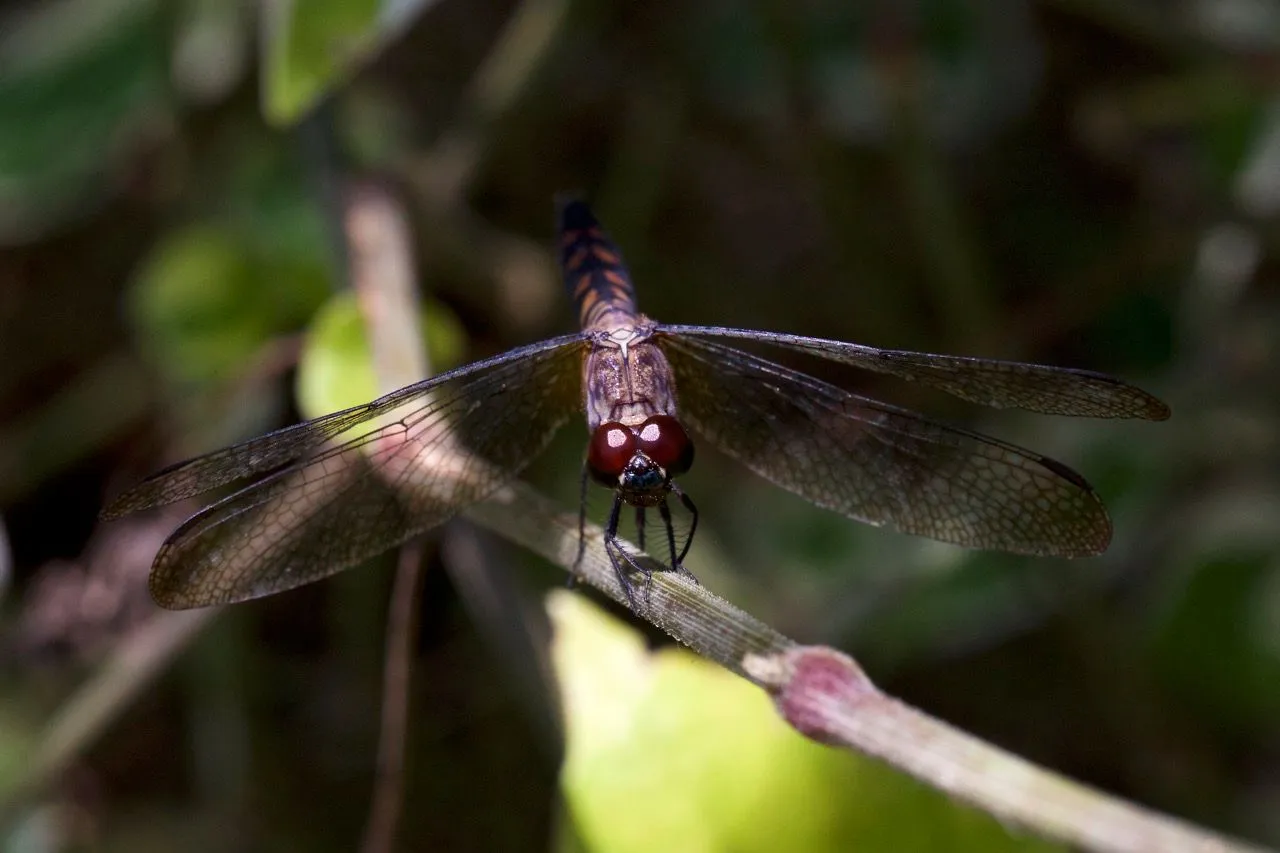
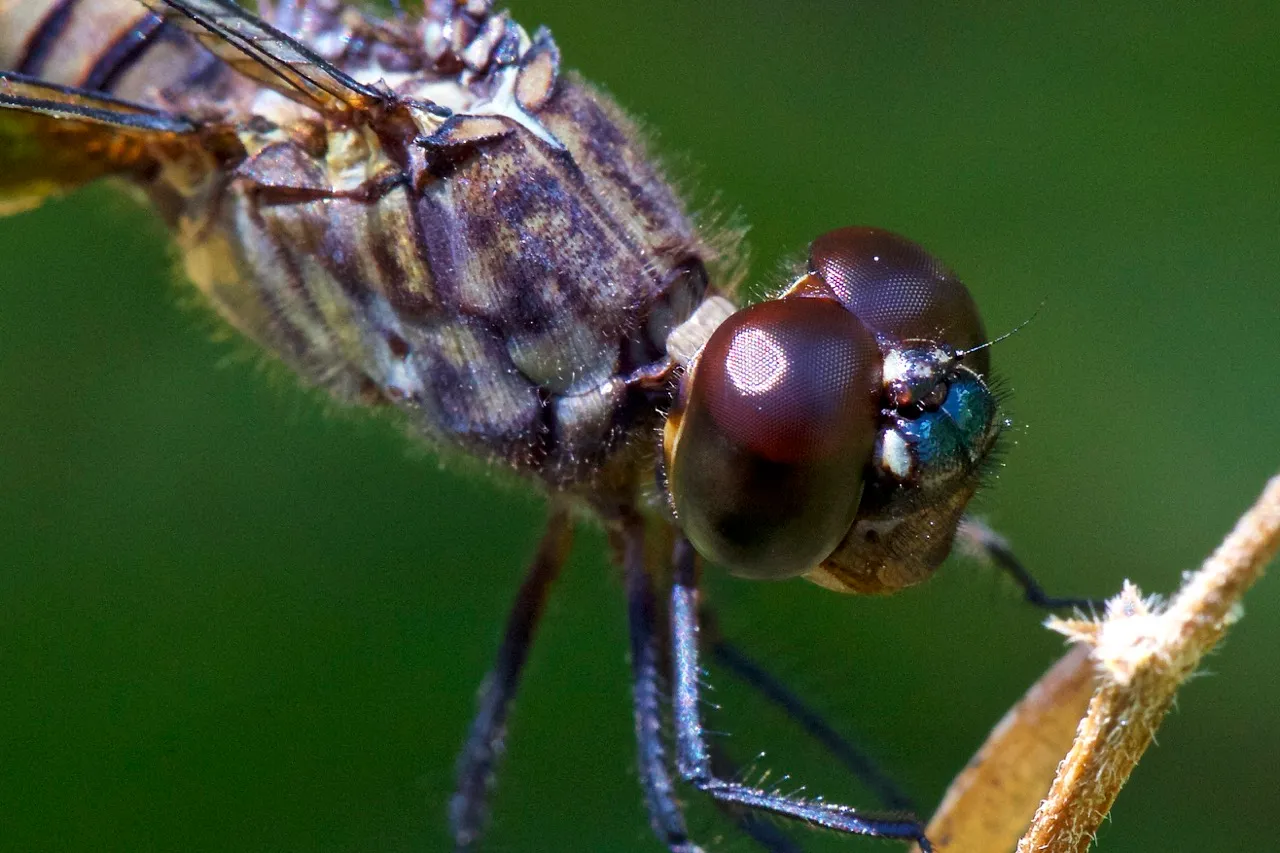
Another interesting insect is the mud dauber. This type of wasp doesn’t live in a colony. It builds a nest for its offspring out of mud.
In my personal experience this insect is extremely aware. When they build their nest in our house they really know where it is. It doesn’t matter which window is open or on which floor, they always fly straight towards it.
They do so carrying a little ball of mud that they collected and made themselves. They also know where to find the right sand or clay to make their little balls of mud. They fly in and out of our house building their nests with astonishing speed and precision.
After building the nest, or the cell, they start bringing in food for their offspring. This is usually a little spider but I saw them carrying little caterpillars as well. The wasp grabs them and stings them to paralyse them and then lay their eggs on top of the victims. The cell is then closed with a mud cap.
Unfortunately I don’t have any pictures of mud daubers but I have witnessed their behaviour many times. To me, to be able to do all of this a mud dauber must have an awareness that is more than just instinct.
I even heard them singing to their young. Well, to me it sounded it as such.
The wasps in the next picture were actively protecting their queen. I found them swarming in my garden. They were probably looking for a place to build a nest. They were not aggressive when I photographed them. But these wasps, being aware of me, started to show a threat display. Notice that they all look at me.

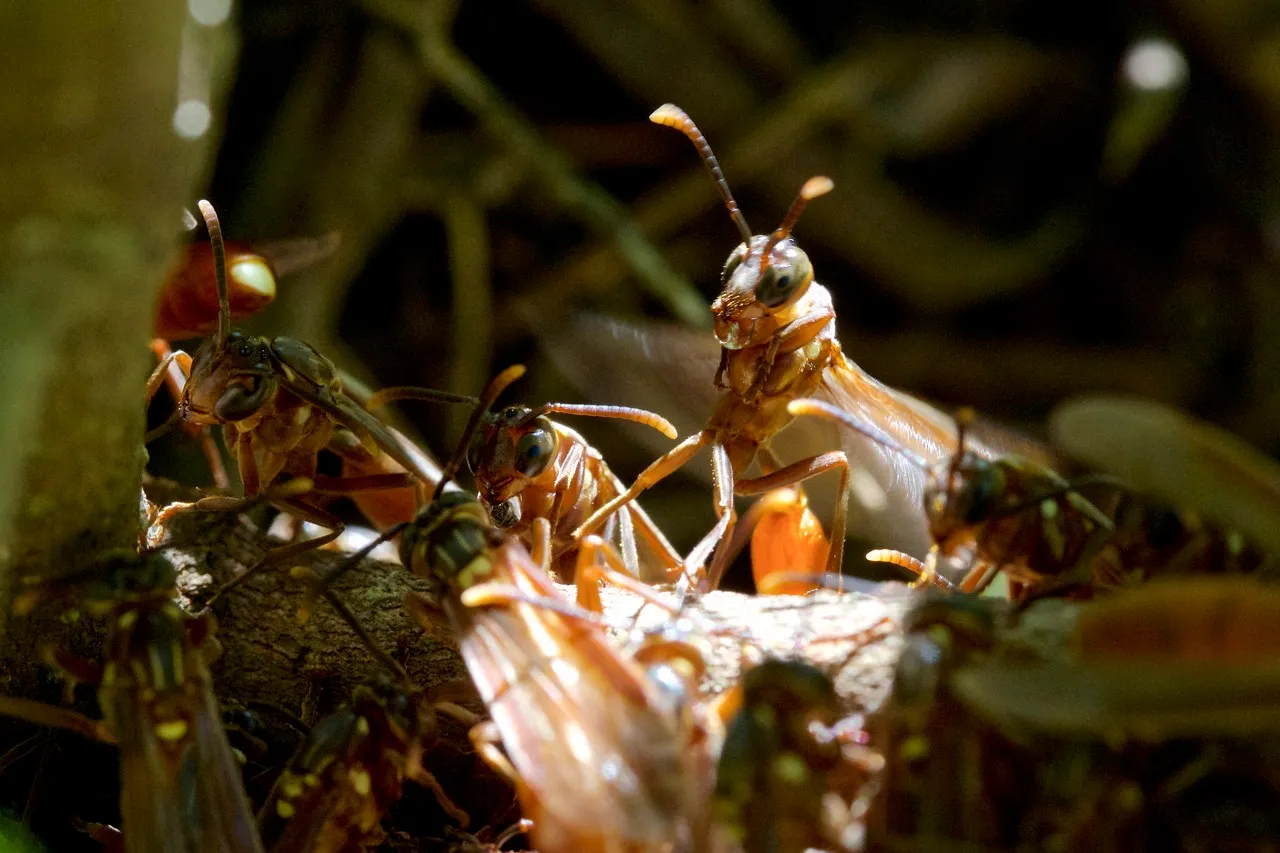

My personal believe and answer to my initial question is that insects do have an awareness. As do all living creatures on this planet. Awareness cannot be measured in the capacity to think or understand. Awareness or consciousness seems to be a driving force behind life itself.
Thanks and much love,
Gardenbsquared

from the other passengers on our Eco-Train.
